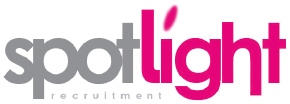Asking the right questions to your candidates will lead to more productive interviews and better appointments.
Interviews can be nerve-wracking for candidates, but they’re not the only ones under pressure. As a hiring manager, you’ll have a relatively short period of time to get to know an individual before deciding if they’re the best fit for the role. As well as assessing their skills and industry experience, the interview is the first opportunity to determine the attitude, maturity and self-awareness they could bring to your organisation. Here are some questions to help you make an informed hiring decision.

Choosing the right interview questions
The first step to a successful interview is understanding the needs of the team and the company of your potential new hire. Try to build up a picture of the perfect candidate, then break down each of the key skills that they require, and build your questioning around each point. When developing a list of general questions, be sure to note opportunities to probe further and elicit more elaborate responses.
An interview should be a collaborative process, allowing the candidate to communicate comfortably in a two-way discussion. This approach takes the pressure off both sides, leading to more meaningful and free-flowing interactions.
In addition to questions tailored to your role, there are certain questions that work well in almost every interview. They offer a concise overview of your candidate’s strengths and an insight into how they’d fit into your team.
What attracted you to this role?
It’s a classic ice breaker, but it’s also an opportunity for the candidate to how you how much research they’ve done. It’s a chance for them to display enthusiasm about your company and the role, and to understand what aspects of the job they’re interested in.
What workplace achievement are you most proud of?
Another classic, but it gets candidates talking more about the experiences that they value. You’ll see how they tackle difficult situations, work independently or as part of a team, and how they deal with unexpected obstacles.
What skill would you most like to improve on?
This question is a variation on the famous ‘what would you say your greatest weakness is?’ That question asks the candidate to focus on their negative qualities, which doesn’t always produce self aware or useful answers. Instead, you can get an insight into their plans for personal development and their ability to overcome issues.
Why did you leave your last job, or why are you considering leaving your current role?
This question explores the candidate’s career ambitions and critical thinking skills. They might be dissatisfied in their current job, unable to progress their career in their current company or be looking to transfer their existing skills to a new field. The key takeaway is understanding the thought process behind the move and getting a truthful, thoughtful answer.
How would your co-workers describe you?
It’s unlikely you’ll get a chance to chat with their colleagues, but this is the next closest thing. It’s an opportunity to hear more about their soft skills and interpersonal workplace relationships, giving a better view of how they’d fit into the existing team.
What do you do when you’re not working?
If the interview is starting to feel a bit tense, this question can be a good way of loosening things up. People are far more than their job roles, and it’s nice to get to know them on a more personal level. Some hobbies can foster transferable skills, but it’s more about seeing what interests and drives them.
Do you have any questions for me?
Typically the last question in an interview, this is the candidate’s opportunity to reinforce their passion for the role and ask about anything that wasn’t clear throughout the interview. Specific and relevant questions show that they’ve been paying close attention throughout the process.
Need more help finding your perfect candidate? Our specialist team can help. Call us on 020 3008 4254 or get in touch with us online.

